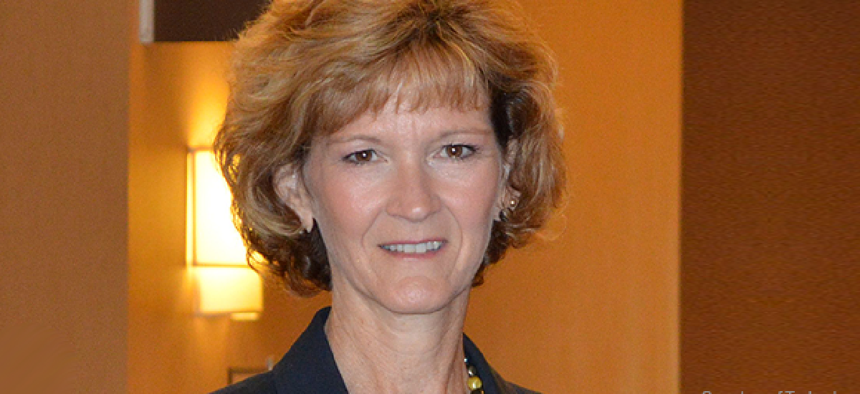Karen Jackson: The exit interview


Connecting state and local government leaders
Virginia's outgoing secretary of technology talks about her work in cybersecurity, autonomous technology and smart communities.
Virginia Secretary of Technology Karen Jackson has spent the last four years coordinating Gov. Terry McAuliffe's initiatives on cybersecurity, autonomous systems and smart cities. She oversees the Virginia Information Technologies Agency, which provides IT support for state agencies, and the Center for Innovative Technology (CIT), which invests in early-stage technology companies to further economic development.
With the start of Gov. Ralph Northam’s administration on Jan. 13, Jackson will be leaving her position. Northam will be eliminating the technology office and moving IT oversight to the state’s Department of Administration. The secretary of commerce and trade will oversee CIT.
Before Jackson’s departure, she spoke with GCN about her accomplishments and her hopes for the new administration continuing her work with cybersecurity, data analytics and unmanned systems.
This interview has been edited for length and clarity.
What do you consider your biggest accomplishments?
We are going to be leaving the commonwealth in a very different place from where we started. As chair of the National Governor's Association, McAuliffe launched the Meet the Threat initiative to help states confront the cyber challenge. It will be the first chairman’s initiative that will be carried on as a normal initiative beyond a chairman’s term. We sought to help other states establish a cybersecurity baseline and gave them the ability to grow what they had already been doing. We have also tried to help our municipalities become more secure by leveraging our National Guard to as a creative way to improve preparedness.
How did you support autonomous technologies?
We served as a catalyst to make sure that all of the efforts coming from transportation, aviation or my office created a pro-policy environment. Other states have gone about trying to regulate emerging industries. Our approach was to watch the industry develop, put in guidance and regulations where appropriate, but not stifle the overall advancement of the industry. We’ve been careful take a hands-off perspective in regulation and put resources and assets into place to set Virginia up to be a leader in autonomy going forward.
How does your data analytics work encourage agency collaborations?
Data analytics is a more internal process where we are trying to get agencies more comfortable with data sharing. We were the first administration to hold a Datathon in 2015 and to create an internship program for data analytics. With a four-year governorship, you run out of time, but we’ve really built a solid foundation where our agencies are having constructive conversations on how to establish data sharing. We’ve done an analysis of where the speed bumps are, so if the Northam administration wants to take up a legislative initiative to try to change the code to make it easier for agencies to share data, they know what those changes need to be and where they need to be made.
You’ve been working to position Virginia as a leader in smart communities. What's next for that?
We laid solid groundwork with the Center for Innovative Technology to continue the work going into 2018, but it will be up to the Northam administration to decide how to move the work forward. We decided to hold off on publishing our report until March 1 to give the people who are writing it more time after the inauguration. It's also the beginning of a long legislative session, so waiting a little bit to allow the administration to get their legs under them is a better plan.
What other initiatives have helped serve Virginia’s technology needs?
CIO Nelson Moe worked with CIT to create VITA’s Innovation Center of Excellence, a vehicle for agencies to be able to evaluate different technologies. They’ve done work with drones, different types of software and apps. Between the two agencies, we have provided new and creative ways for agencies to get involved through the VITA conduit mainly because there wasn’t a good way for small businesses and innovative technology to cleanly make it into our agencies. Both Moe and CIT President and CEO Ed Albrigo have been thinking creatively about how their agencies can advance what the governor has always called the "New Virginia Economy."
Does your proximity to Washington, D.C., help further Virginia's technology goals?
Smart communities is one of those initiatives where there are a lot of monies being spent by the federal government. We have an ongoing relationship with National Institute of Standards and Technology. The Department of Homeland Security awarded CIT $4.8 million to do some work with internet of things and cybersecurity. We are trying to build relationships with as many agencies as possible to take advantage of the funding programs that they have. They have done several years of work in smart communities that we don’t need to go back and do again. We are working hard to develop close relationships so we can move forward together on this because there are big opportunities at stake.




